On December 8, 2020, Pope Francis announced the Year of St. Joseph. Because of my personal devotion to St. Joseph, when I heard the news, my heart leapt for joy. Pope Francis begins his apostolic letter, “WITH A FATHER’S HEART: that is how Joseph loved Jesus. St. Joseph loves each of us with a Father’s heart as well and wants to bring us closer to his Son. Our time spent reflecting on the life of St. Joseph and his role in salvation history will ultimately lead us to a deeper relationship with his son, Jesus, and God, our heavenly Father through the workings of the Holy Spirit.
In the Gospel passage, Matthew 1:16, 18-21, 24a, we see that Joseph was a righteous man. A righteous person puts his or her relationship with God before all else in life and cares for people as God would care for them. In scriptures, someone who is righteous reflects God’s compassion.
As a righteous man, Saint Joseph sets an example for all Christians, as well as all people of good will (cf. Lk 2:14). Saint Irenaeus teaches that righteous people are those who “love the God who made them and do nothing unjust against their neighbor.” Although Saint Irenaeus was not writing specifically about Saint Joseph, his definition certainly can be applied to the Spouse of Our Lady. (https://catholicstarherald.org/saint-joseph-the-righteous-is-the-model-for-every-man/)
Being a righteous man required St. Joseph to put his personal wants and desires aside, for the greater good of his family. God called him to an extraordinary life, much different than St. Joseph probably envisioned for himself. In his righteousness, he seeks to divorce Mary secretly, quietly, so as to protect her and her child. The Church has not definitely taught why St. Joseph responded to this situation in the way he did. On Day 16 of the Consecration, Father Galloway explores these three theories. (Consecration to St. Joseph: The Wonders of Our Spiritual Father by Father Donald Galloway) Maybe St. Joseph suspected that Mary had committed adultery, maybe St. Joseph was perplexed and could not understand the situation but believed in Mary’s innocence. Or maybe St. Joseph understood that God had truly brought forth life in Mary’s womb and in his righteousness, he deemed himself to be unworthy to take care of Mary and the child. Whichever theory is correct, one thing is certain, when the angel tells him “Be not afraid to take Mary into your home,” his righteousness leads to obedience.
How often do we allow our self-righteousness to get in the way of our obedience to God and his plan for our lives? We accept his blessings without a second thought to how he is calling us to use them for the betterment of our world. Each day, God blesses us with many different gifts, but do we offer those gifts back to God by using them to build up his kingdom here on earth?
Self-righteousness leads to selfishness and hardness of heart. In our self-righteousness, we judge others not to be worthy of our love. We fail to see the sin in our own lives, and we look down on others. When this occurs, we place ourselves in the place of God. This path will lead to certain destruction through addiction, a lack of respect for the human dignity of others, and a deteriorating understanding of our own value as children of God. Self-righteousness takes us away from God’s love, love of self, and love of others. Self-righteousness is a disease that leads to pride, use of others, and division. The only cure for self-righteousness is to put aside our own wants and desires and to surrender to God’s love through obedience.
In our world today, obedience has a negative connotation and is often seen as a word of oppression. We view obedience as a forced, unwilling decision to do something we don’t want to do because we’re afraid of punishment. Yet that’s not the kind of obedience to which God calls us. In the actions of St. Joseph, we see the true definition of obedience rooted in love. Obedience to God is humbly acknowledging the fact that we are not God. It is not only accepting God’s love in our lives but returning that love by seeking to do His will. This might not always be easy, and often we may not understand what the future may hold, but God reassures us in the words of the angel to St. Joseph “Be not Afraid.”
We can see Saint Joseph possessed a great love for God in his obedience in following the message of the angel to take Mary into his house. The obedience to do the will of God in this extraordinary case implies that Saint Joseph must have striven to follow the commandments of God in the ordinary things of daily life.
Obedience to God’s will requires us to know his will for our lives. In the case of St. Joseph, he knew God’s will through dreams in which the angel of God tells him what to do. In trust and courage, St. Joseph responds immediately and without delay. Through his obedience, the savior of the world is born into a loving family that protects him so that he can fulfill God the Father’s plan for his life, which is the salvation of each and every one of us.
But you may be saying to yourself, how do I know what God’s will is for my life? How can I seek to do his will if I don’t know what I am supposed to do? These are fair questions. The search for God and the desire to do his will is a lifelong endeavor, but we do not have to guess what God’s plan for our lives is. He loves us and wants to spend eternity with us. He wants to walk with us in this life, as Mary and Joseph did with Jesus, in the good times and the bad, in the quiet moments, in our sufferings, and in our joys. So, if his plan seems unknown to us, all we need to do is ask him.
There may be some of us who know God’s plan for our life, but we are placing obstacles in the way. We are afraid, we have an addiction, we have our own plan, we are running away from God’s love. Now is the time to surrender. Now is the time to hand over our lives to God through the intercession of St. Joseph.
Maybe the obstacles to being just and loving obeying God’s will involve sin. Now is the time to ask God for forgiveness and start anew. In the words of absolution, God brings us back into recognition of his total, faithful, and undying love for us. When we are forgiven, we can begin to heal, and we can begin to love ourselves and others with the love of God in the depth of our soul.
Let us lay all our shortcomings, our failures, and our fears at the feet of Jesus through the intercession of his earthly Father. This complete surrender will enable us to open our hearts and minds to God’s loving presence in our lives and learn to love as he loves.
Pray the Litany of St. Joseph, found in the prayers button of myParish App. Spend a few moments in silent reflection. In that moment, speak to God from your heart. Ask him to show you his will for your life. Ask him for his forgiveness. Ask him to help you name the obstacle, the self-righteous tendency that you have that keeps you from his love and from obediently loving him. When you pray the litany, ask St. Joseph, your spiritual father, and Terror of Demons, to intercede for you to your Heavenly Father. Ask St. Joseph to show you how to be righteous and obedient and live in the intimacy of God’s love
St. Joseph, righteous and obedient, pray for us.
Deacon Scott A. Root
Pastoral Associate
St. Katharine Drexel Parish
Mechanicsburg, PA 17050







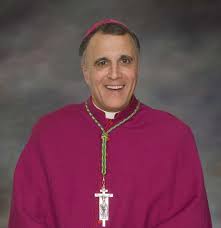
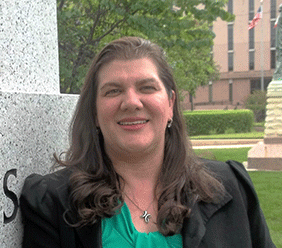
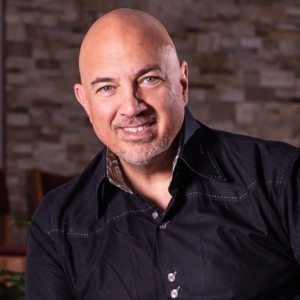
 Kimberly Kay Cox
Kimberly Kay Cox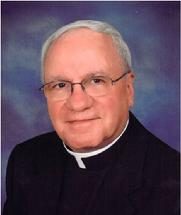







 Mark Mogilka
Mark Mogilka




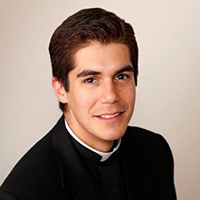
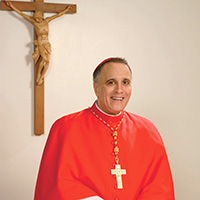








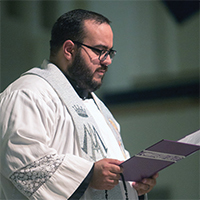
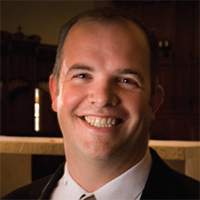


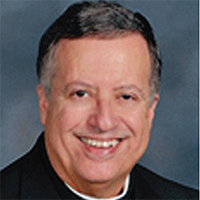

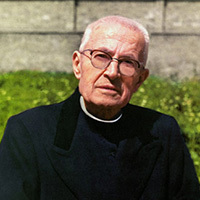







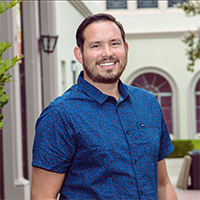
 Armando Cervantes
Armando Cervantes Anna Betancourt
Anna Betancourt
 Andrea Chavez-Kopp
Andrea Chavez-Kopp